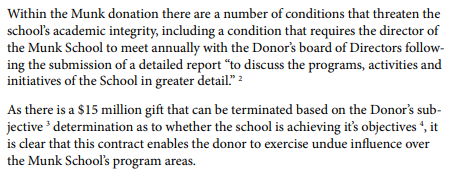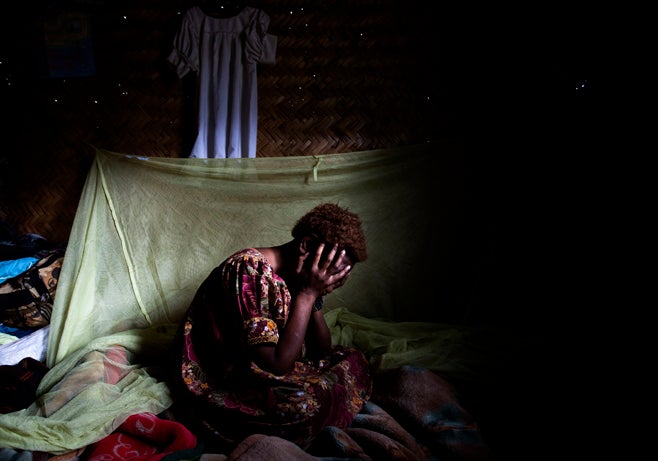Let's talk about "charities". Charities or charitable foundations are a lot more complicated than you might realise. Take the Munk Foundation, for example. They give a lot of money out. Is this because they are altruistic? Let's unpack this a bit.
There are a lot of reasons why insanely wealthy individuals and corporations donate money to causes. They do not all involve having good hearts. There are tax considerations, for one thing.
Having charitable status allows an organisation to give tax receipts to donors. Including the founders of a foundation. This can be an important tool is managing the taxes a wealthy individual or corporation has to pay.
At the same time, charitable foundations allow a lot of movement of money with less oversight than an audited public company might face. It allows for bringing in speakers suited to the founder's agenda or philosophy, like how Munk brought in Steve Bannon to Toronto.
In some ways this is what Andrew Scheer has said he would do, tying funding to post-secondary institutions to what speakers he would like to see there and what he would like to have taught.
Organizations also often give money to charitable causes to give them the sheen of "good corporate citizenship" which draws attention away from their less savoury aspects.
Munk acquired his fortune through a number of corporations, including Barrick Gold. Barrick Gold has a rather less than saintly history of operational practices around the world.
In Papua New Guinea...
Papua New Guinea again... Allow me to draw your attention to sexual violence and gang rapes on page 2...
earthrights.org/wp-content/upl…
earthrights.org/wp-content/upl…
In Tanzania...
Basically around the world...
earthrights.org/wp-content/upl…
earthrights.org/wp-content/upl…
Barrick Gold has close ties with the CPC and Harper. CPC MP John Baird left federal politics and went to work for Barrick as an advisor in 2015...
In a way, having a charitable foundation can be seen something like being able to buy dispensation for your sins.
There are potentially additional benefits. Giving large sums can buy you a voice in directing policy, educational direction, and re-designing the social zeitgeist.
When you see the word "charity", you may think of soup kitchens, visiting the elderly in hospital, or providing mosquito nets in Africa. But it can be much more complicated than that.
However, these rules are somewhat vague and subject to interpretation. For example, the Fraser Institute (one of the Munk Foundation's beneficiaries) is a charitable organisation under CRA rules. I struggle to see what contribution they make to society.
I can, however, clearly see how it benefits its donors. The Munks, the Kochs, and other right-wing organisations that donate heavily. They give money, get a significant tax benefit, and the FI churns out reports that support their ideology.
I do not know how they got charitable status. But they have it and so does Aurea, who hosts talks by Jordan Peterson, Steve Bannon, etc. And the beneficiaries are the donors.
So, don't let the wording, that proposed debates are being run by "charities" delude you into thinking these organisations are doing something positive. They are not. Not by any reasonable thinking, at any rate.
These so-called charities exist to expand the gap between the uber-rich and the poor. They exist to change the way Canadians view the world. They also, apparently, exist to sway Canadian election and undermine our democracy.
Not all charities are nefarious. There are excellent charities that do legitimately altruistic work. Physicians Without Borders, for example. But it is wise to not take the label "Charity" at face value.
Do your research before you donate. Do your research before you accept their claims. Do your research before you think participating in their leadership debates is safe or innocuous.
There are greedy people in this world. Ironically, some of them appear to be the most charitable. Always follow the money. Who benefits? If it is children in sub-Saharan Africa, great. If it is rich old men with more than they could possibly need, not so much.



/https://www.thestar.com/content/dam/thestar/news/canada/2015/03/30/john-bairds-appointment-to-barrick-job-raises-questions/john-baird.jpg)

No comments:
Post a Comment